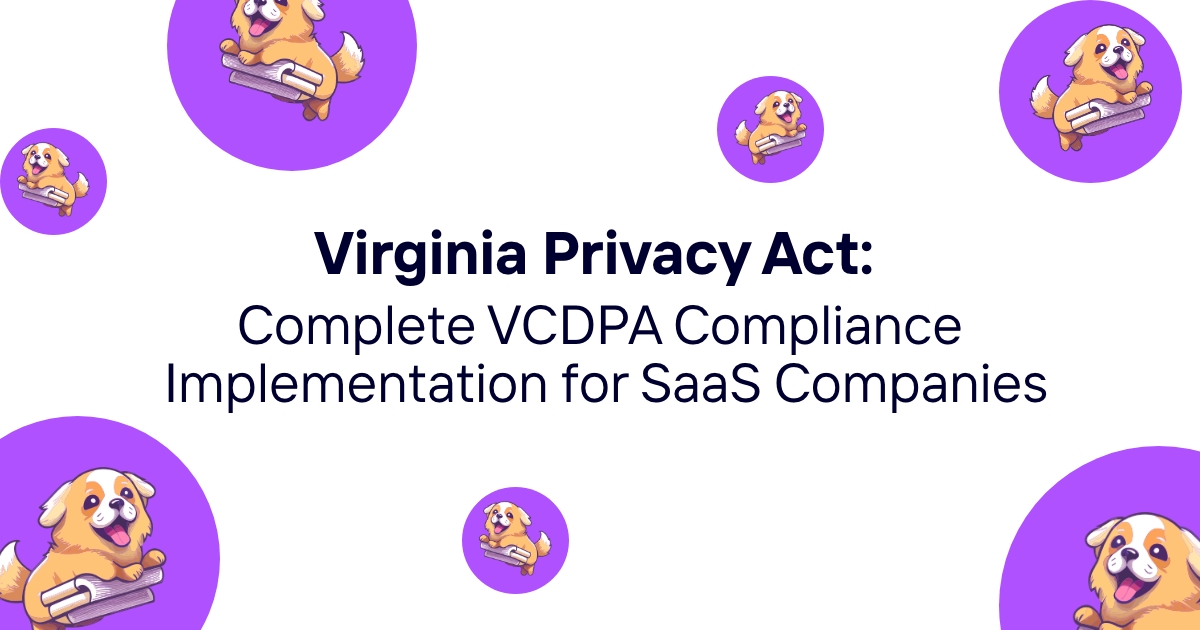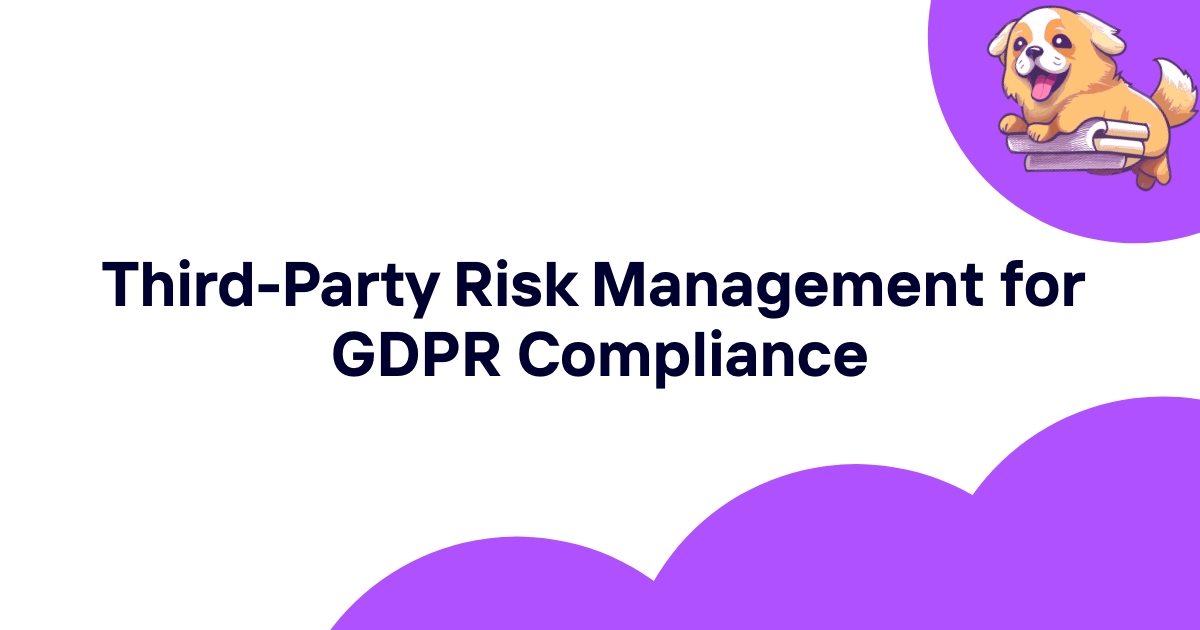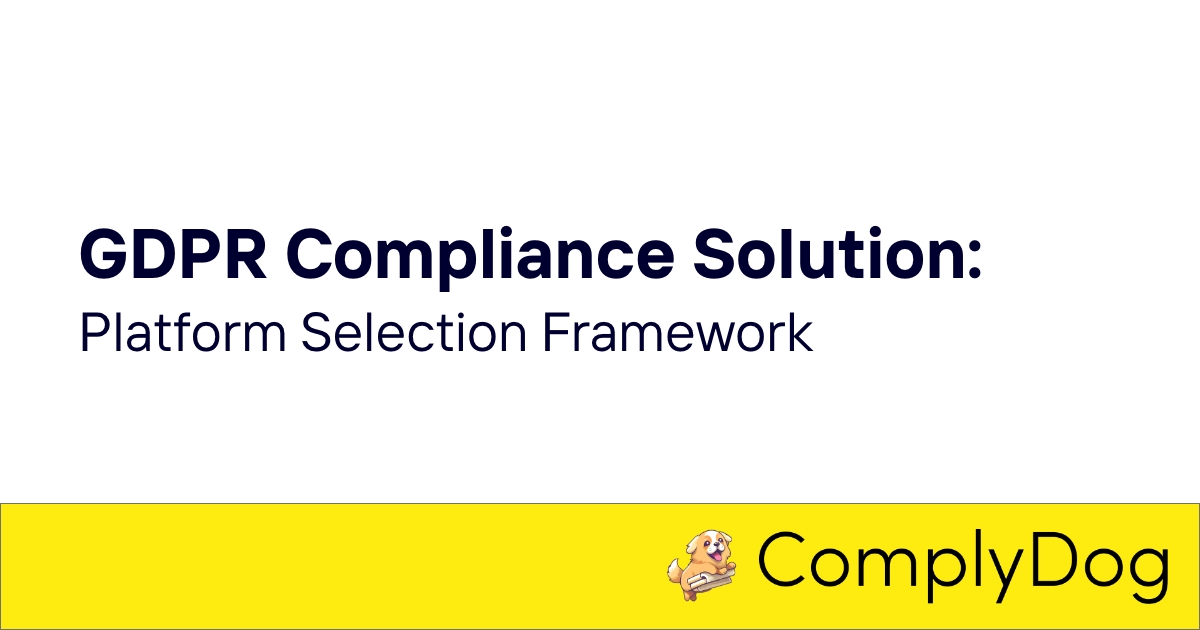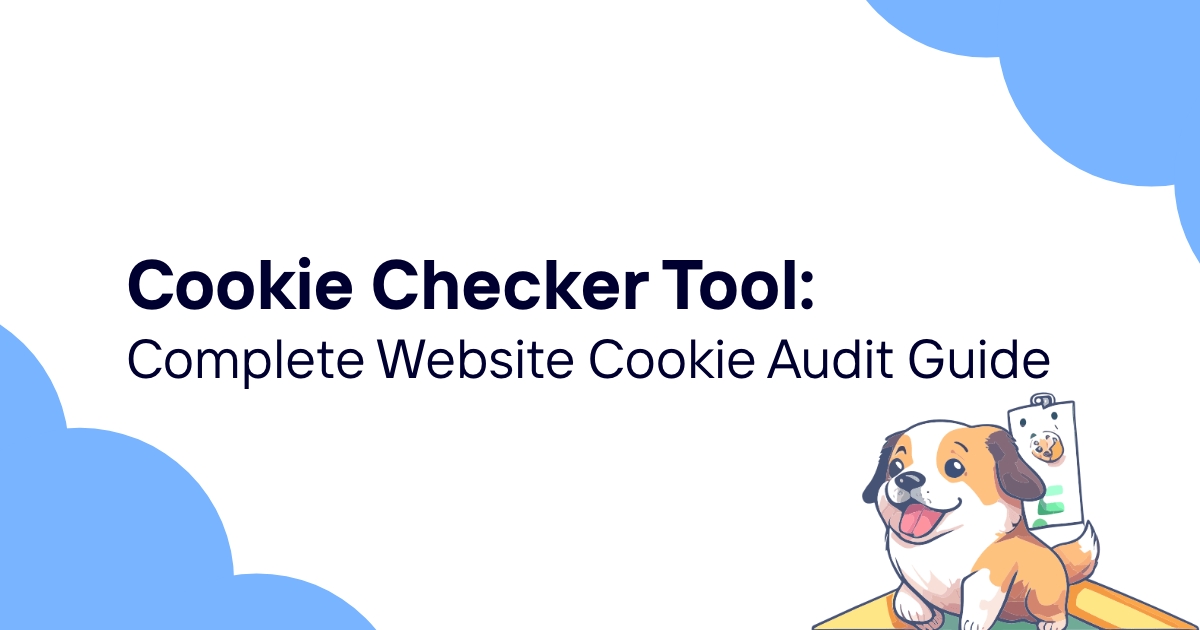Virginia's Consumer Data Protection Act (VCDPA) represents the new wave of American state privacy laws that SaaS companies must navigate as comprehensive privacy regulation spreads beyond California. VCDPA creates unique compliance challenges that blend European-style consumer rights with American business flexibility, requiring careful implementation that differs from both GDPR and CCPA approaches.
VCDPA applies to SaaS companies that conduct business in Virginia and either control or process personal data of at least 100,000 Virginia consumers annually or derive over 50% of gross revenue from selling personal data and control or process personal data of at least 25,000 Virginia consumers.
The Virginia privacy landscape reflects broader trends toward comprehensive state privacy legislation, with VCDPA serving as a model for other states considering similar laws. SaaS companies need compliance strategies that can scale across multiple state privacy frameworks while maintaining operational efficiency.
Virginia's approach emphasizes business flexibility and reasonable implementation timelines while providing meaningful consumer rights. This balance creates opportunities for SaaS companies that proactively implement thoughtful privacy protection rather than minimum compliance approaches.
Companies that master VCDPA compliance position themselves for success as state privacy laws proliferate across the United States. ComplyDog helps SaaS platforms navigate state privacy requirements through comprehensive compliance management that addresses Virginia and other emerging state privacy frameworks.
VCDPA Requirements for SaaS Platforms
VCDPA creates comprehensive privacy obligations for SaaS companies that meet Virginia's jurisdictional thresholds through specific requirements that address consumer rights, data processing, and privacy protection.
VCDPA Scope and Applicability:
VCDPA applies to controllers and processors that conduct business in Virginia and meet specific volume thresholds for personal data processing. Most SaaS platforms serving Virginia customers will need to evaluate applicability carefully.
The law exempts certain entities including nonprofit organizations, higher education institutions, and financial institutions subject to federal privacy laws, but these exemptions are narrow and don't apply to most commercial SaaS platforms.
Personal Data Definition:
VCDPA defines personal data as information that is linked or reasonably linkable to an identified or identifiable natural person. This includes user accounts, IP addresses, device identifiers, and behavioral analytics collected by SaaS platforms.
The definition excludes publicly available information and de-identified data that meets specific technical standards, but SaaS companies must be careful about data that might be re-identified through combination or analysis.
Controller vs Processor Obligations:
VCDPA distinguishes between controllers (who determine processing purposes and means) and processors (who process data on behalf of controllers). Most SaaS platforms act as controllers for their own business purposes while also serving as processors for customer data processing.
Understand your role in different data processing contexts to ensure appropriate VCDPA obligations are applied. Customer relationship management might involve controller responsibilities, while customer data hosting might involve processor obligations.
Consumer Rights Framework:
VCDPA provides Virginia consumers with specific rights including access, correction, deletion, portability, and opt-out rights that SaaS platforms must support through appropriate systems and procedures.
Design consumer rights implementation that provides meaningful access while protecting business operations and other consumers' information from inappropriate disclosure or interference.
For insights on managing state privacy compliance alongside other frameworks, check out our Australia privacy compliance guide which addresses similar multi-jurisdictional challenges.
Virginia Consumer Rights Implementation
VCDPA consumer rights create specific implementation requirements for SaaS companies that must balance meaningful rights access with practical business operations and system capabilities.
Consumer Access Rights:
VCDPA gives consumers rights to confirm whether personal data is being processed and access categories of personal data being processed. SaaS platforms must provide meaningful access that helps consumers understand data processing without compromising system security.
Implement access systems that can provide comprehensive information about data processing activities, categories, purposes, and retention periods while protecting operational details and other consumers' information.
Data Correction Rights:
Consumers can request correction of inaccurate personal data, requiring SaaS platforms to implement systems that can identify and correct factual errors while handling disputes about inferred or derived information appropriately.
Design correction mechanisms that distinguish between objective factual errors and subjective assessments or analytics that consumers might dispute but that don't constitute inaccuracies requiring correction.
Data Deletion Rights:
VCDPA deletion rights allow consumers to request deletion of personal data provided by or obtained about the consumer, with specific exceptions for legitimate business needs and legal obligations.
Implement deletion systems that can remove consumer personal data while preserving necessary information for business operations, legal compliance, and other consumers' services and security.
Data Portability Implementation:
Data portability rights let consumers obtain personal data in a portable and readily usable format that allows transmission to another controller without impediment, when technically feasible.
Create portability systems that provide genuinely useful data exports in standard formats while protecting business intellectual property and other consumers' confidential information.
VCDPA vs GDPR: Key Differences for SaaS
VCDPA and GDPR share privacy protection goals but have different implementation approaches that affect how SaaS companies build compliance systems for multiple jurisdictions.
Legal Basis Approaches:
VCDPA doesn't require specific legal basis for processing like GDPR, but instead focuses on purpose limitations and consumer rights that restrict how personal data can be used without explicit permission.
This difference means GDPR legal basis analysis doesn't directly translate to VCDPA compliance, though similar privacy principles apply through different regulatory mechanisms and implementation requirements.
Consent Standards:
VCDPA requires consent for processing sensitive data and targeted advertising, but uses different consent standards than GDPR that focus on clear affirmative acts rather than GDPR's explicit consent requirements.
Design consent systems that satisfy both frameworks when serving consumers in multiple jurisdictions, ensuring GDPR's higher consent standards also meet VCDPA requirements where applicable.
Sensitive Data Protection:
VCDPA provides specific protection for sensitive personal data including racial origin, health information, precise geolocation, and personal data from children under 13, requiring consent for processing.
Implement enhanced protection for sensitive data that satisfies both VCDPA specific requirements and GDPR special category data protection through coordinated but jurisdiction-appropriate mechanisms.
Automated Decision-Making Rights:
VCDPA provides rights concerning automated decision-making that differ from GDPR's automated decision-making provisions in scope and implementation requirements.
Design automated decision-making systems that provide appropriate transparency and human oversight for both VCDPA and GDPR requirements while supporting legitimate SaaS business purposes.
Virginia Privacy Law Data Processing Requirements
VCDPA creates specific data processing obligations that affect how SaaS companies collect, use, and share personal data while conducting business operations and serving customers.
Data Minimization Requirements:
VCDPA requires limiting collection of personal data to what is adequate, relevant, and reasonably necessary for the disclosed purposes, affecting how SaaS platforms design data collection and analytics systems.
Audit data collection practices to ensure all personal data collection serves specific business purposes that are disclosed to consumers and necessary for legitimate SaaS operations and service delivery.
Purpose Limitation Obligations:
Personal data must be processed for disclosed purposes that are compatible with the original collection purpose, requiring clear purpose definition and limitation throughout the data lifecycle.
Document processing purposes clearly and implement systems that prevent purpose creep or unauthorized secondary use of personal data beyond what consumers reasonably expect from your SaaS services.
Data Quality and Accuracy:
VCDPA requires reasonable measures to ensure personal data accuracy in relation to processing purposes and consumer correction requests, affecting data management and quality assurance processes.
Implement data quality procedures that maintain appropriate accuracy for business purposes while providing mechanisms for consumers to identify and correct inaccuracies in their personal information.
Data Security Requirements:
SaaS platforms must implement reasonable security measures appropriate to the volume and nature of personal data processed, considering industry standards and regulatory expectations.
Design security programs that address VCDPA requirements while supporting business operations and customer trust through comprehensive protection that exceeds minimum compliance standards.
VCDPA Consent Management for Software Companies
VCDPA consent requirements focus on specific data processing activities including sensitive data processing and targeted advertising that require explicit consumer permission.
Sensitive Data Consent:
VCDPA requires consent for processing sensitive personal data including health information, precise geolocation, racial origin, and personal data from children under 13.
Implement consent mechanisms that clearly identify sensitive data processing and obtain appropriate permission before collection or use while supporting legitimate SaaS functionality and user experience.
Targeted Advertising Consent:
Processing personal data for targeted advertising requires consumer consent under VCDPA, affecting how SaaS platforms implement advertising, analytics, and marketing features.
Design advertising consent systems that provide clear choice about targeted advertising while supporting legitimate marketing and platform improvement activities that don't require specific consent.
Consent Withdrawal Mechanisms:
Consumers must be able to withdraw consent as easily as it was given, requiring SaaS platforms to implement practical withdrawal mechanisms that respect consumer choices while maintaining service functionality.
Create consent withdrawal systems that provide granular control over different consent decisions while clearly explaining the impact of withdrawal on service availability and functionality.
Consent Documentation:
Maintain appropriate records of consent decisions including what permissions were granted, when consent was obtained, and how consumers were informed about processing purposes and rights.
Implement consent tracking that provides sufficient detail to demonstrate compliance during regulatory reviews while supporting consumer rights exercise and platform operations.
State Privacy Compliance Strategy for SaaS
Building effective state privacy compliance requires strategic approaches that address current VCDPA requirements while preparing for additional state privacy laws and regulatory evolution.
Multi-State Compliance Architecture:
Design privacy compliance systems that can handle VCDPA alongside other state privacy laws including California's CCPA, Colorado's CPA, and emerging state frameworks through unified but flexible implementations.
Implement privacy technology that provides comprehensive protection across multiple state requirements while maintaining operational efficiency and consistent user experience across different jurisdictions.
Virginia-Specific Implementation:
While building for multi-state compliance, ensure VCDPA-specific requirements receive appropriate attention including Virginia consumer rights, state-specific definitions, and regulatory expectations.
Consider Virginia market characteristics and consumer expectations when implementing privacy features that exceed minimum legal requirements while supporting business growth and customer trust.
Compliance Monitoring and Updates:
Implement monitoring systems that track VCDPA compliance alongside other privacy frameworks while alerting management to regulatory changes or enforcement developments that affect compliance obligations.
Stay informed about Virginia privacy law developments, regulatory guidance, and enforcement actions that might affect SaaS compliance requirements and business operations in the state.
Customer Communication Strategies:
Develop customer communication that explains VCDPA compliance while building trust and confidence in privacy protection practices that differentiate your SaaS platform in competitive markets.
Create transparent communication about state privacy compliance that supports customer understanding while demonstrating privacy leadership and commitment to comprehensive data protection.
Virginia Privacy Act Documentation Requirements
VCDPA compliance requires comprehensive documentation that demonstrates privacy protection commitment while supporting efficient operations and regulatory accountability.
Privacy Policy Updates:
Update privacy policies to address VCDPA requirements including consumer rights descriptions, data processing purposes, sharing practices, and contact information for privacy inquiries and rights requests.
Develop privacy policies that address Virginia consumers specifically while maintaining comprehensive coverage of all applicable privacy frameworks and business practices.
Data Processing Documentation:
Document data processing activities, purposes, categories, and retention practices in ways that support VCDPA compliance demonstration and consumer rights fulfillment.
Create processing documentation that provides operational guidance while supporting regulatory compliance and consumer rights exercise through clear, accessible information.
Consumer Rights Procedures:
Develop documented procedures for handling consumer rights requests including verification, fulfillment, and response timelines that meet VCDPA requirements while protecting business operations.
Implement procedures that provide efficient rights processing while maintaining appropriate security and verification measures that protect both consumers and business interests.
Training and Awareness Programs:
Implement training programs that ensure staff understand VCDPA requirements and their responsibilities for handling Virginia consumer personal data appropriately during business operations.
Develop role-specific training that addresses state privacy obligations while maintaining practical guidance for operational efficiency and customer service quality.
Ready to navigate the evolving state privacy landscape? Use ComplyDog and build comprehensive privacy programs that satisfy VCDPA alongside other state and international privacy requirements through efficient, unified compliance management.


















